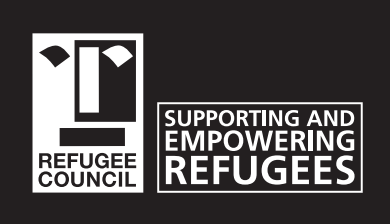New report calls on the Government to do more to ensure that refugees who have been granted asylum are given much more help to find accommodation
In a report released last week, the Refugee Council said that a "chaotic system" could leave thousands of newly recognised refugees virtually abandoned by the Government which has committed to protecting them.
 You can read the 40-page report, England's forgotten refugees: Out of the fire and into the frying pan, here.
You can read the 40-page report, England's forgotten refugees: Out of the fire and into the frying pan, here.
The report explores the experience of newly recognised refugees in England within their first year of being granted asylum. After being granted refugee status, those who are receiving accommodation and subsistence payments from the Home Office are informed that it will cease in 28 days, a timeframe during which it is expected that the newly recognised refugee will be able to secure housing and income.
The Refugee Council found that that newly recognised refugees face significant practical problems because of this short timeframe.
In particular, many face becoming homeless and destitute. The Refugee Council says it found 81 of 100 of the new refugees it surveyed were homeless or about to be when they came to see the organisation.
The report states: "These refugees are virtually abandoned by the Government, which has committed to protect them, and often are left homeless and hungry as a result.
"Issues with delays in newly recognised refugees receiving key identity documents persist, and these have a knock on effect on refugees' ability to access income and services. The brevity of the move on period leads to newly recognised refugees experiencing homelessness and destitution, as systems failures mean there is not sufficient time to get support in place before the Home Office evicts them from their asylum accommodation and terminates their subsistence payments.
"Without the support of charities, many of the refugees in this research would have experienced more acute problems. As it is, some were left on the verge of suicide. Voluntary organisations successfully advocated for people to prevent eviction and support them in their search for accommodation and income. Unfortunately not all newly recognised refugees will be able to access this kind of support, leaving them to navigate this confusing time on their own."
Refugee Council Head of Advocacy, Dr. Lisa Doyle, was quoted as saying: "For people who have escaped war, torture and rape; being granted asylum in Britain should be a moment of immense relief; a time to finally stop running and instead to focus on rebuilding their shattered lives. Shockingly, quite the opposite is true. These forgotten refugees are being all but abandoned by the Government which has just committed to protecting them. Quite simply, refugees are being left without refuge."
The Refugee Council calls on the UK Government to do more to ensure that refugees who have been granted asylum are not forgotten, and are given much more help to find accommodation including through faster loan processing and easier access to rent deposit schemes.